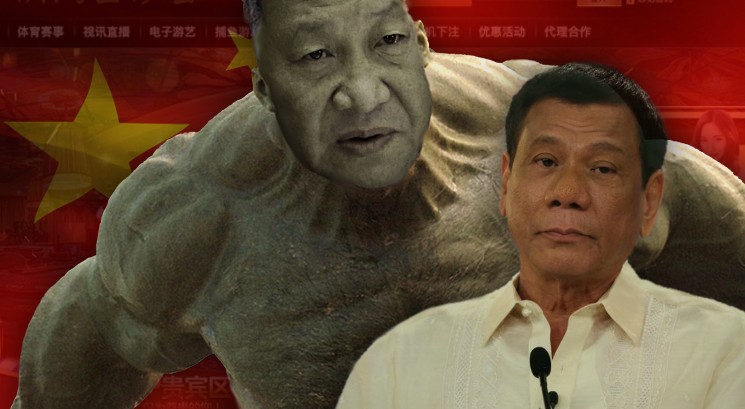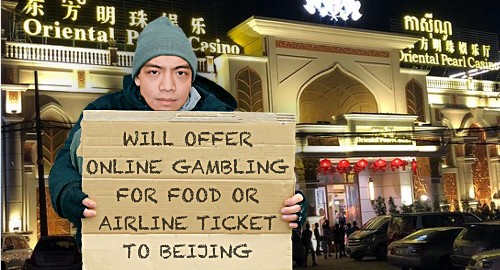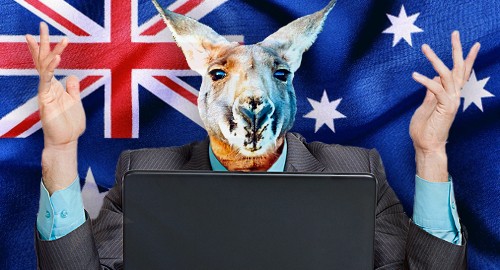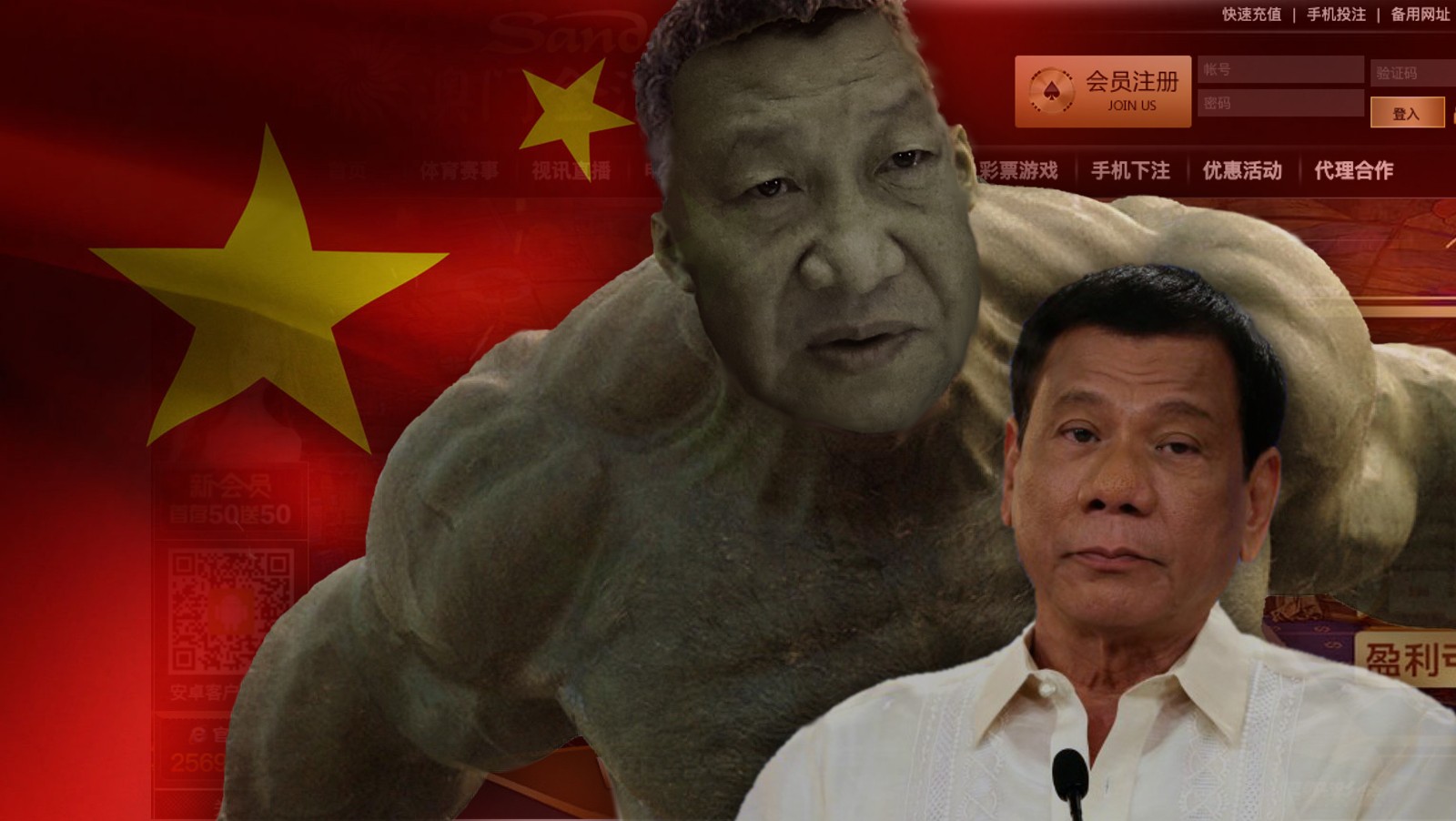
The big Asian online gambling story of 2019 was the end of China’s patience with operators based in other Asia-Pacific countries serving mainland Chinese gamblers.
This new effort made headlines mid-year when China’s embassy in the Philippines issued a thoroughly undiplomatic public rebuke of locally licensed Philippine Offshore Gaming Operators (POGOs) for undermining China’s “financial security.”
Within days, the Philippine Amusement and Gaming Corporation (PAGCOR) announced that it was pausing the issuance of any further POGO licenses, although it claimed the move was due to political concerns over Chinese ‘spies’ working for POGO service providers.
Philippine President Rodrigo Duterte, who has been noticeably warmer to China than previous administrations, initially said he’d “study” China’s “implied request” to shut down POGOs altogether, but ultimately concluded that the sector’s contribution to the government treasury was too great to forego.
POGOs didn’t have much time to celebrate, as the Philippines formed a Task Force POGO that began cracking down on POGOs and their service providers for not paying their full tax obligations and/or circumventing labor laws through illegal immigration. In December, Duterte threatened to slap/punch/shoot noncompliant POGO operators, giving them three days in which to amend their evil ways.
 China’s anti-online efforts scored greater results in Cambodia, which announced in August that it wouldn’t renew any local online gambling licenses when they expired at the end of the year. The move was justified on the need to preserve “public order” but preserving its relationship with Beijing was clearly the order of the day.
China’s anti-online efforts scored greater results in Cambodia, which announced in August that it wouldn’t renew any local online gambling licenses when they expired at the end of the year. The move was justified on the need to preserve “public order” but preserving its relationship with Beijing was clearly the order of the day.
That surprise announcement resulted in a flood of Chinese ex-pats closing their Cambodian online gambling operations and going home. Cambodia’s finance minister warned that the government’s tax coffers would take a hit from the online shutdown but China rode to the rescue with “grants to support development” of non-gaming businesses in Cambodia.
In September, China invited other Asia-Pacific nations to join their anti-online gambling campaign. The previous month saw China and Vietnam mount their first joint operation against illegal online gambling.
China also publicly shamed junket operator Suncity Group, which Beijing accused of operating illegal online gambling services from its overseas VIP rooms. Suncity denied the allegations but announced that it would henceforth not participate in any form of gambling not authorized in Macau, regardless of whether said gambling activity was legal in the jurisdiction in which it was based.
China’s anti-gambling efforts also targeted online payment processors and credit card issuers and Beijing also announced plans to dramatically restrict youth access to online video games and young peoples’ ability to purchase in-game virtual products.
China’s state-run lotteries weren’t spared, as Beijing banned so-called ‘fast-frequency, fast-open’ lottery products that the authorities viewed as catering to problematic gambling tendencies. Negative growth began in February and never looked back.
 MACAU
MACAU
Macau’s casino market suffered a dramatic reversal in 2019, sliding back into negative growth after two years of positive traction. The slide was blamed on a number of factors, including the US-China trade war cutting into the discretionary income of some manufacturing high-rollers.
Macau wasn’t helped by the trend of junket operators steering clients to casinos in other Asia-Pacific gambling markets, including Cambodia and Vietnam, both of which feature much lower gaming tax rates than Macau. The Vietnam market is expected to draw even more heat away from Macau in 2020 with the opening of Suncity’s Hoaiana resort early in the new year.
The shifts were significant enough that VIP baccarat surrendered its long-held crown as the top contributor to Macau casino revenue. Mass market gaming overtook the VIP segment in Q1 and mass market baccarat alone nearly overtook its VIP counterpart in Q3. In addition to tightened liquidity, the overdue application of Macau’s smoking laws to VIP rooms in 2019 also contributed to the VIP decline.
Macau broke new ground in December with the launch of digital table games via fixed terminals and “hand-held computer tablets” courtesy of International Alliance Systems’ cloud-based GameSource electronic platform. The launch is a minnow, with only four of those digital tablets currently on offer at MGM Macau, but further terminal and game rollouts are planned in 2020.
 AUSTRALIA
AUSTRALIA
Australia’s online sports betting operators continued to prove a convenient whipping boy for local politicians, leading some banks to ban credit card gambling and the banking industry contemplating a sector-wide credit ban. Australia’s telecom watchdog blocked its first unauthorized international gambling domains in 2019 and the government also confirmed plans to impose a national online betting self-exclusion registry.
On land, Crown Resorts’ sale of 20% of its shares to Melco Resorts & Entertainment boss Lawrence Ho hit a snag when regulators raised red flags over Ho’s famous father Stanley’s alleged connections to Hong Kong triads. While Lawrence said he’d welcome regulatory scrutiny, Melco ultimately paused completion of the share purchase until it was sure this storm would pass.
Lawrence’s hesitation came as Crown Resorts came under fire in July from a 60 Minutes report that included allegations of money laundering, drug and human trafficking, as well as immigration violations involving Crown’s Asian VIP gamblers. While the company pushed back on these allegations, state and federal gambling regulators and law enforcement agencies opened probes that remain ongoing.
CAMBODIA
In Cambodia, the government’s plan to end its online gambling licensing regime caused havoc in Sihanoukville, which had become ground zero for dozens of Chinese-run casinos that also offered online gambling. The scale of the Chinese exodus was a matter of some debate, but by Christmas the government’s official number of active casinos had fallen by 22 to 141 and it seems certain that the local casino market will have lost a lot of its sketchier operators by 2020.
Meanwhile, NagaCorp announced an ambitious – some say overly ambitious – plan to spend $3.5b expanding its NagaWorld casino in Phnom Penh. As a reward, Cambodia agreed to extend NagaCorp’s gaming monopoly in and around the capital by a further 10 years to 2046.
JAPAN
Japan continued its annoyingly slow march toward integrated resort licensing, including forming its first casino regulatory body. Operators’ frantic jockeying for prime position in certain desirable cities continued unabated, although some operators began to wonder whether it was still ‘prudent’ to consider participating in this derby, given the rising projected cost of landing a casino and the potential limits of casino regulations.
Japan’s public remains deeply skeptical of the touted benefits of casino legalization, a view that wasn’t helped by the Christmas day arrest of a lawmaker accused of accepting bribes from Chinese gaming operator 500.com, which had hoped to win a permit to operate a casino in Hokkaido.
 IMPERIAL PACIFIC
IMPERIAL PACIFIC
The reliably epic horrorshow that is Saipan casino operator Imperial Pacific International (IPI) had its most eventful year to date, including yet more FBI raids seeking evidence of possible money laundering, wire fraud and illegal campaign contributions to the local governor.
Meanwhile, IPI was sued by the US Equal Employment Opportunity Commission for allegedly subjecting female VIP hosts to sexual harassment. IPI also agreed to a $3.36m settlement with the US Department of Labor for sketchy treatment of its construction workers.
IPI booked a net loss of $240m in the first half of 2019 after writing off $765m in uncollectable VIP gambling markers. That, and its apparent inability to pay its annual license fee and debts to contractors, added weight to mounting concerns that the company was teetering on the financial brink.
In May, IPI claimed to have arranged a $500m lifeline from a Japanese conglomerate but it’s unclear exactly how much of this sum actually arrived or how it was spent. In July, IPI’s majority owner Cui Li Jie tried to sell 14b IPI shares but the sale apparently didn’t go through. In November, Cui tried again, announcing a deal to sell 7b shares.
IPI closed out the year with a flurry of roster moves in December, including the (second) departure of chairman/CEO Mark Brown as well as its general counsel, neither of whom offered any explanation for their exits. The new lawyer then quit before he’d even officially started work, also without explanation. At this rate, it seems almost inevitable that IPI will get its own episode of 60 Minutes or a full season of American Horror Story.
